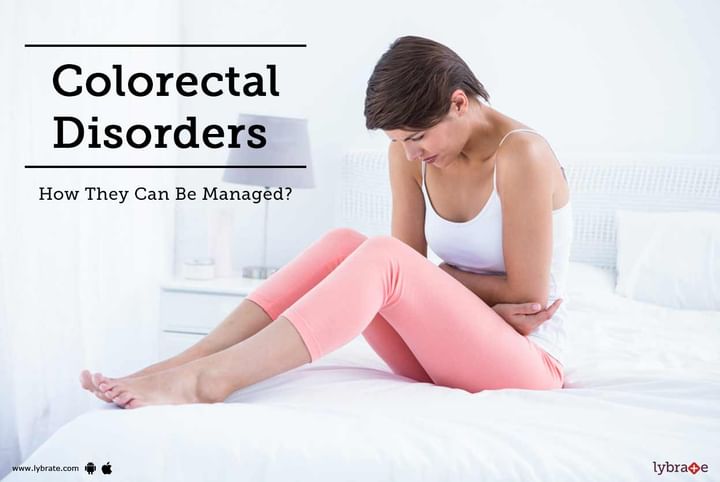Colorectal Disorders - How They Can Be Managed?
The last part of the intestinal tract is the colon (or large intestine) and the rectum. When these organs are affected, the symptoms are quite similar and so they are referred together as colorectal disorders. This could include a wide spectrum of infections to motility disorders (diarrhea and constipation) to polyps and cancer. Listed below are some of the common colorectal disorders:
Infections: Clostridium difficile is a common bacterial infection of the colorectal region. These infections can be difficult to diagnose and treat.
Motility disorders: This can range from constipation to diarrhea to fecal incontinence and often has an underlying muscular condition. Constipation is when a person has less than three bowel movements per week.
It can be chronic or acute. Diarrhoea refers to frequent, watery stools and is often a sign of underlying infection. If it continues to prolong, then it should be a cause for concern. Faecal incontinence is when there is lack of control over bowel movements, leading to partial or complete leaking of stool.
- Diverticulitis: Diverticula are small sacs of the large intestine, and when there is inflammation of these, diverticulitis ensues. The faecal matter could get trapped in these and cause further problems.
- Polyps: These are benign growths along the length of the intestine, which can eventually become cancerous.
- Inflammatory bowel disease: This is a chronic condition of the digestive tract and includes Crohn’s disease and ulcerative colitis.
- Cancer: Cancer of the colon, rectum, and anal area often get detected quite late, as the symptoms are mistaken for other common conditions.
Symptoms: Whatever the type of colorectal disorder be, the symptoms are similar and include:
- Lower abdominal pain
- Alteration in bowel habit, including constipation and/or diarrhea
- Constant bloated feeling
- Rectal bleeding, either spotting or frank blood
- Weight loss (with no particular reason)
- Loss of appetite
- Painful bowel movement
Diagnosis: The whole set of symptoms or clinical presentation can give a clue to the underlying condition. In addition, given the length and complexity of the colorectal area, the following may be used:
- X-ray
- Colonoscopy
- Sigmoidoscopy
- Endoscopic ultrasound
- Capsule endoscopy
Some of these can also be used to remove small polyps or growths.
Management of the condition: This covers a wide spectrum from food changes to surgery.
- Bowel motility disorders: Disorders like chronic constipation may be linked to poor, low-fiber diet. This is often solved with improved eating habits.
- Medications: These may include antibiotics, probiotics, anti-inflammatory drugs, and immunity controllers (for IBD).
- Surgery: This could include resection of polyps, removing the cancerous portion of the colon, or resecting a certain portion of the bowel (segmental resection).
In case you have a concern or query you can always consult an expert & get answers to your questions!



+1.svg)
